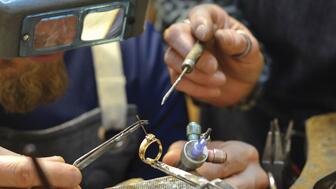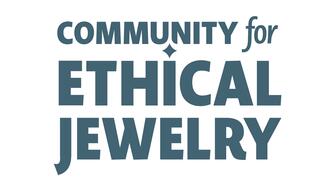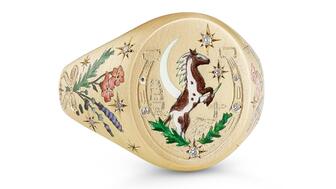In a 6-3 ruling, the court said the president exceeded his authority when imposing sweeping tariffs under IEEPA.
Squirrel Spotting: Top Salespeople Need Love Too
Peter Smith makes a case for giving your top salespeople space, but not so much space that they feel entirely alone and unappreciated.

One of the great paradoxes with superstar salespeople is like the rest of us (or even more so), they want to be left to their own devices to hunt and prospect, unencumbered by anything they view as an obstacle.
But they also want to be loved, and they need to be loved.
Superstar salespeople want to feel like they are part of the group, respected, perhaps even the most respected members of the team.
They need to know that what they see as their unique talents—the ability to engage customers and influence buying behaviors—is valued, without the irritant of petty rules and regulations.
It is that latter aspect, the rules and regulations part, that infuriates managers of top salespeople.
Managers want to be fair and equitable. They want to give everyone the same opportunity to be successful and they can’t understand why there’d be one set of standards for the team and an entirely different set for one person.
It is hard to argue with that sentiment. Wouldn’t it be great if everyone, to paraphrase the Ritz-Carlton, behaved like proper ladies and gentlemen? Wouldn’t our lives be that much easier if all our people were equally motivated, emotionally mature, and sensible in all their choices and decision-making? What a lovely, utopian planet we would have (well, at least within the confines of our own businesses).
Lost in the well-intentioned sentiment of wanting to treat everyone the same is the irony of top performers not acting the same as everyone else.
They don’t ask you to call them in the morning to deliver a pep talk. They don’t wait for managers to point them in the direction of customers.
They don’t need convincing that what pays the bills are sales, profitable sales. They don’t waste time with activities and projects that don’t move the bar, and they almost always prioritize selling activities over everything else.
There’s no doubt star salespeople can be difficult to manage. Their maverick-like behavior can drive their colleagues crazy, and they do push the envelope in their efforts to make sales and to minimize distractions.
“Great salespeople need space to make their magic happen … Leave them, but don’t forget to love them.”But, before you get too caught up in your well-intentioned efforts at fairness and equity, ask yourself: Does the rest of my team bring to the table what my top salespeople do?
The idea that sales from top sellers would have happened anyway, even if they didn’t work at your store, is optimistic and self-serving.
The best salespeople have an inherent wiring that is not shared by their colleagues and their talent is reflected in their ability to self-prospect, to close more sales at a higher average ticket, to add-on and up-sell, and to develop repeat business through assertive and self-driven clienteling.
Great salespeople need space to make their magic happen and that magic is oxygen for our businesses. They should be given every opportunity to do what comes naturally to them. Their drive is not a function of training or outside motivation; it is inherent.
Let them do their thing and pull them back only every now and then to ensure they don’t go completely off the rails. Don’t try to manage out of them what you never managed into them in the first place.
Leave them, but don’t forget to love them.
Don’t misinterpret their desire to go it alone with not wanting to feel like they are a part of the team.
Make sure to tell them—privately, publicly and authentically—that you value what they bring to the table and what they mean to your business.
In “Leaders Eat Last: Why Some Teams Pull Together and Others Don’t,” Simon Sinek wrote: “As much as we want to stand out and consider ourselves individuals, at our core we are herd animals that are biologically designed to find comfort when we feel like we belong to a group.
“Our brains are wired to release oxytocin when in the presence of our tribe and cortisol, the chemical that produces the feeling of anxiety, when we feel vulnerable and alone.”
Top salespeople will seek newer pastures when they feel ostracized or apart from the group.
They want the freedom to make things happen and to blaze a trail. What they don’t want is to feel like they are on the trail alone.
Peter Smith is president of Memoire and author of two books, “Hiring Squirrels: 12 Essential Interview Questions to Uncover Great Retail Sales Talent” and “Sell Something: Principles and Perspectives for Engaged Retail Salespeople.” Both books are available in print or Kindle at Amazon.com. Connect with Smith on LinkedIn or at dublinsmith@yahoo.com.
The Latest

Smith encourages salespeople to ask customers questions that elicit the release of oxytocin, the brain’s “feel-good” chemical.

JVC also announced the election of five new board members.

Launched in 2023, the program will help the passing of knowledge between generations and alleviate the shortage of bench jewelers.

The brooch, our Piece of the Week, shows the chromatic spectrum through a holographic coating on rock crystal.


The show will be held March 26-30 at the Miami Beach Convention Center.

The estate of the model, philanthropist, and ex-wife of Johnny Carson has signed statement jewels up for sale at John Moran Auctioneers.

Criminals are using cell jammers to disable alarms, but new technology like JamAlert™ can stop them.

Are arm bands poised to make a comeback? Has red-carpet jewelry become boring? Find out on the second episode of the “My Next Question” podcast.

It will lead distribution in North America for Graziella Braccialini's new gold pieces, which it said are 50 percent lighter.

The organization is seeking a new executive director to lead it into its next phase of strategic growth and industry influence.

The nonprofit will present a live, two-hour introductory course on building confidence when selling colored gemstones.

Western wear continues to trend in the Year of the Fire Horse and along with it, horse and horseshoe motifs in jewelry.
![A peridot [left] and sapphires from Tanzania from Anza Gems, a wholesaler that partners with artisanal mining communities in East Africa Anza gems](https://uploads.nationaljeweler.com/uploads/cdd3962e9427ff45f69b31e06baf830d.jpg)
Although the market is robust, tariffs and precious metal prices are impacting the industry, Stuart Robertson and Brecken Branstrator said.

Rossman, who advised GIA for more than 50 years, is remembered for his passion and dedication to the field of gemology.

Guthrie, the mother of “Today” show host Savannah Guthrie, was abducted just as the Tucson gem shows were starting.

Butterfield Jewelers in Albuquerque, New Mexico, is preparing to close as members of the Butterfield family head into retirement.

Paul Morelli’s “Rosebud” necklace, our Piece of the Week, uses 18-karat rose, green, and white gold to turn the symbol of love into jewelry.

The nonprofit has welcomed four new grantees for 2026.

Parent company Saks Global is also closing nearly all Saks Off 5th locations, a Neiman Marcus store, and 14 personal styling suites.

It is believed the 24-karat heart-shaped enameled pendant was made for an event marking the betrothal of Princess Mary in 1518.

The AGTA Spectrum and Cutting Edge “Buyer’s Choice” award winners were announced at the Spectrum Awards Gala last week.

The “Kering Generation Award x Jewelry” returns for its second year with “Second Chance, First Choice” as its theme.

Sourced by For Future Reference Vintage, the yellow gold ring has a round center stone surrounded by step-cut sapphires.

The clothing and accessories chain announced last month it would be closing all of its stores.

The “Zales x Sweethearts” collection features three mystery heart charms engraved with classic sayings seen on the Valentine’s Day candies.

The event will include panel discussions, hands-on demonstrations of new digital manufacturing tools, and a jewelry design contest.



























